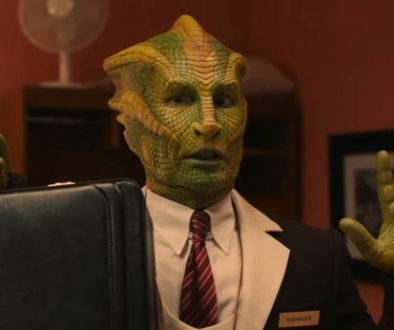Doctor Who – “Rogue” Review – Queer as Folk
Clint Hassell gives his SPOILER-filled commentary on the sixth episode of Series 14.

Note: this review contains full SPOILERS for episode 6 of Series 14.
Despite having all the elements of a standard episode of Doctor Who, “Rogue” feels somewhat dissimilar to the rest of Series 14. Though the expected ingredients are there—period setting, unjust aliens, sciencey-wiencey gadgets—the episode as a whole somehow amounts to less than the sum of its parts. That’s not to say that there is anything wrong with “Rogue.” The episode is competently acted and directed, the costumes and set design are lavish, and the special effects serve the story. It’s just that, with one glaring exception, the aggregate of the episode amounts to “fine.”
First, the plot is light. Shapeshifting aliens wish to experience first-hand the “drama” in “costume drama,” so they kill humans they find interesting, replacing them to be at the center of further scandal. The narrative insists that the bird-like Chuldur family would continue their charade indefinitely, killing everyone on the planet, but the episode shows them too vapid and squawking (pun intended) to be much of a threat. While not every enemy needs to be a Dalek invasion-level threat, the Chuldurs seem more akin to a monster-of-the-week from The Sarah Jane Adventures. Further, though the historical situation makes for beautiful costumes and lush location settings, it is incidental to the plot. “Rogue” could occur at almost any point in spacetime and the story would be the same.
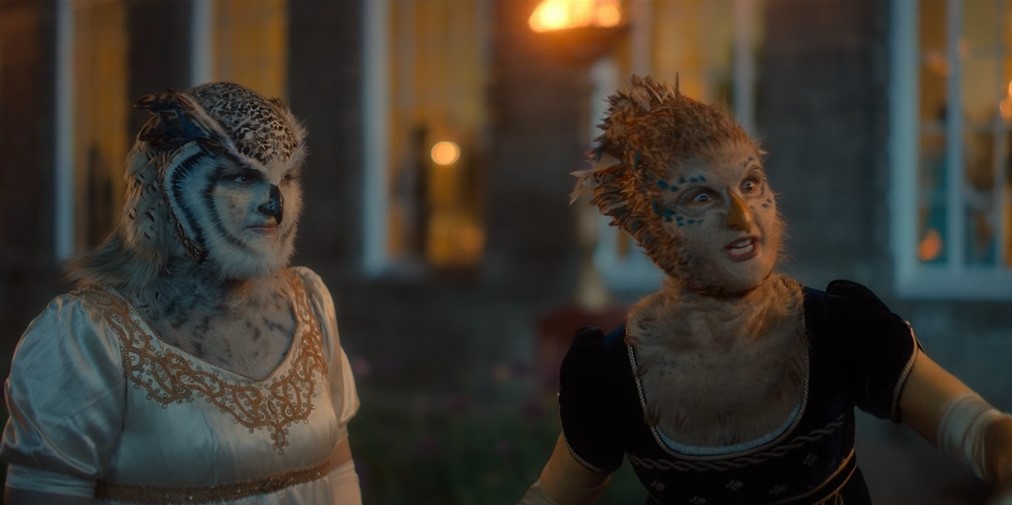
Additionally, companion Ruby Sunday feels like an afterthought in the narrative, which gives her “death” little resonance. This is unfortunate, as her independently deducing much of the same information as the Doctor and utilizing novel technology to fight off one of the Chuldurs demonstrates why she is an effective companion. While comfortable in this romanticized setting, Ruby is also confident in her own agency, as evidenced by the episode’s funniest scene:
Lord Barton: “My dear, you should learn to be admired in silence.”
Ruby: “Yeah, well, if you spoke to me and the girls like that on a Friday night, down at The Spinning Wheel, then we’d rip you a new one, mate. Now, get out of my way, Lord Stilton.”
Lord Barton: “Stilton?”
the Duchess: “It’s a very difficult cheese.”

Perhaps that was the point of this episode: to allow the show’s two lead characters to develop in isolation, apart from each other. More likely, Ruby’s minimized involvement in the already simple plot is to afford maximum screen time to a new, ostensibly recurring character, Rogue, played by Jonathan Groff. While the chemistry between lead actor Ncuti Gatwa and Groff is undeniable—a highlight of the episode, if not all of Series 14—the introduction of the character does represent a change in direction for the series.
Since its inception, Doctor Who has utilized the companion characters—and not the enigmatic Doctor—as audience identifiers. Modern Who has taken that premise a step further, introducing the parents and significant others of the Doctor’s assistants to further define the companion experience. “Rogue” places the Doctor’s emotional journey front and center, giving him a supporting cast of his own in the titular bounty hunter-cum-love interest. This, in and of itself, isn’t a bad thing, with episodes like “Midnight” and “Heaven Sent” demonstrating the value in exploring the Doctor’s character, sans companion.

Seeing the Doctor this forward with his sexuality is unusual. Through the classic series, the Doctor never interacted with a companion in a romantic manner, and the character of Susan, the Doctor’s initial assistant, was even reconceived as the Doctor’s granddaughter just to ensure that no one thought the pair’s relationship was untoward. In the TV movie, the Eighth Doctor awkwardly kissed Grace Holloway in a moment of celebratory passion. Yes, the Ninth and Tenth Doctors were romantically involved with Rose, Eleven was randy for River Song, and Thirteen had one brief date with Yaz before kicking her out of the TARDIS, but the Doctor has never appeared to be “in love,” or interested in a long-term commitment. Aside from Ten’s whirlwind romance with Madame de Pompadour in “The Girl in the Fireplace”—incidentally the last time the Doctor referred to himself as a “Lord of Time”—the Doctor’s active sexuality is a new avenue of storytelling for this show.
Undoubtedly, this change is more noticeable because of showrunner Russell T Davies’ emphasis on queer content within Doctor Who. It’s admirable that Davies uses his position as showrunner to bolster LGBTQ+ representation in entertainment, and, having created Queer as Folk, Cucumber, and It’s a Sin, it shouldn’t be a surprise that he brings that same emphasis to Doctor Who. However—and I say this as a proud, openly gay man—this series’ suddenly shift to a hypersexual Doctor is jarring.

Obviously, this episode emphasizes Fifteen and Rogue’s chemistry—the aforementioned “one glaring exception” to the episode’s sum total of “fine”—to garner emotional investment in future storylines. Maybe that’s why the episode feels unrewarding. “Rogue” is less about the current plot and more about the larger story it undoubtedly foretells. This contrasts with the episodes that introduced Rogue-ish characters Jack Harkness and River Song. “The Empty Child” and “Silence in the Library” are exceptional for reasons that surpass their guest stars, while “Rogue” only truly shines when Gatwa and Groff are together on screen.
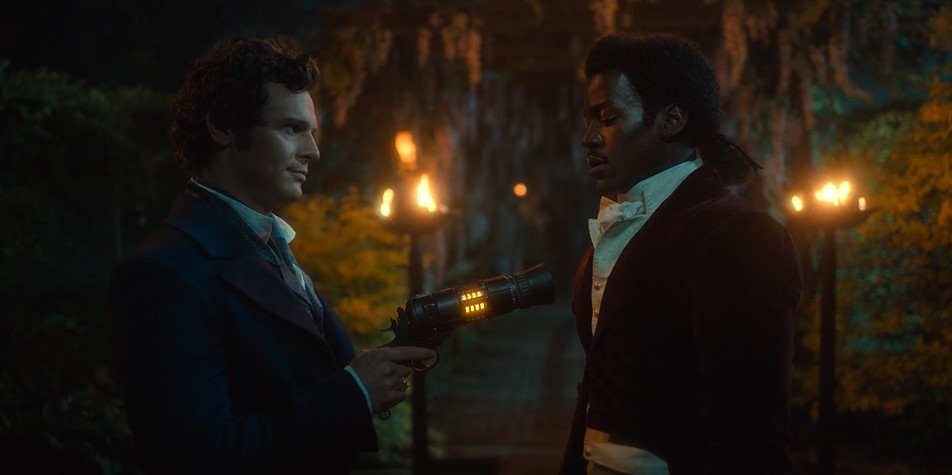
Still, after three episodes in a row where the Doctor was incapacitated, absent, or confined to a holo-screen, it is nice to have an energetic Fifteen physically present within the narrative. And, following a series of Doctors reticent to acknowledge their affections, it’s progress to acknowledge that Fifteen has left his scars of the Time War with Fourteen and is willing to embrace life with passion, even loving again. However, as the Doctor is a practically immortal Time Lord and Rogue is seemingly human, how long can this relationship last? With that forecast in mind, how engaged will the audience be, especially considering the increased emphasis on the Fifteenth Doctor’s sexuality—a sticking point for some conservative viewers?
Random Musings
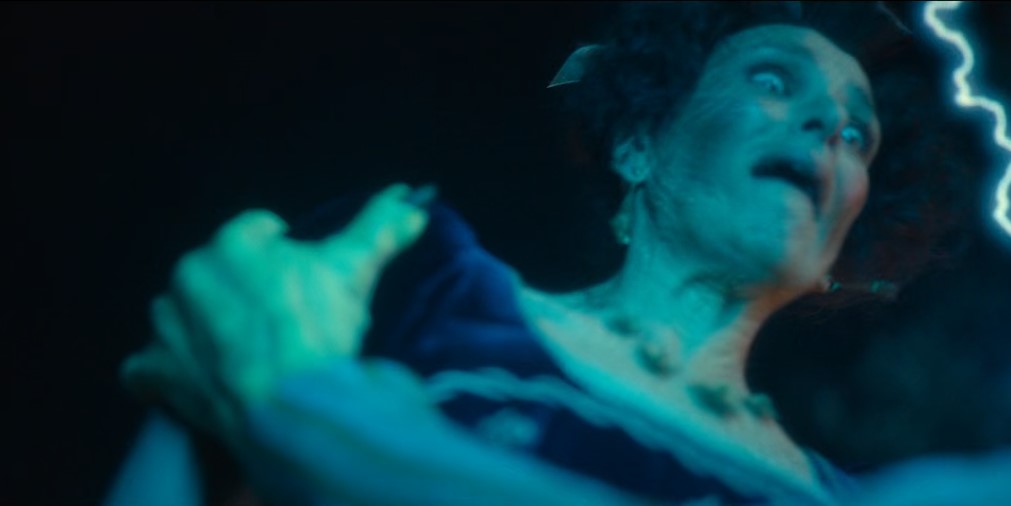
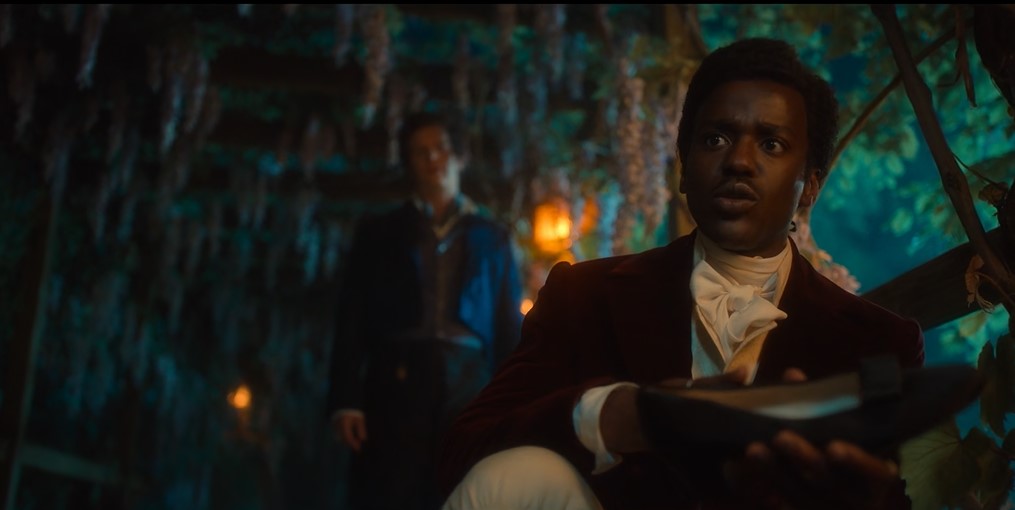
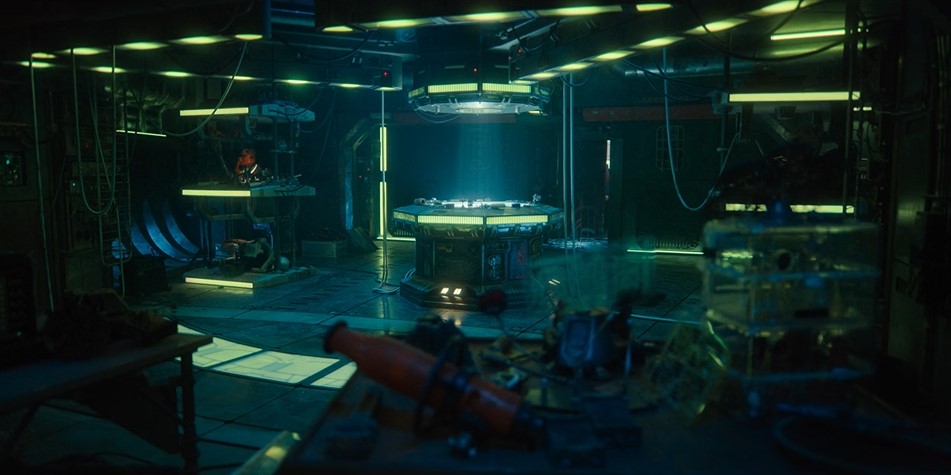




(Time) Capsule Review
“Rogue” skimps on plot and companion screentime to establish a theoretical love interest for the Doctor. While the chemistry between lead actor Ncuti Gatwa and guest star Jonathan Groff is undeniable, the episode’s emphasis on the Doctor’s sexuality is a jarring—though not entirely unwelcome—shift in the show’s narrative.
If you’d like to interact with the author of this article, follow him on Twitter @ClintHassell.





